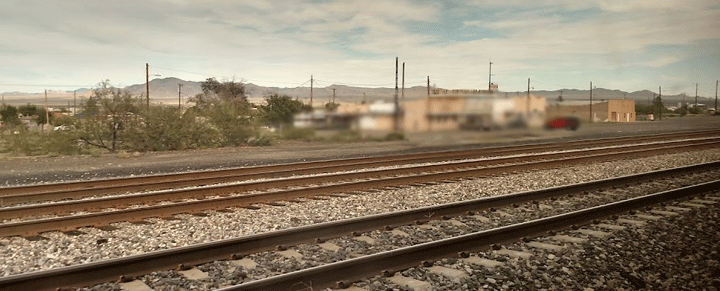One of the benefits of doing genealogy is seeing history through the eyes of your ancestors. Sometimes helping another with their family history has a similar advantage. Cathie’s father wrote up his experiences in the 30s for her. I was so charmed by them that I asked for permission to publish a slightly edited and condensed version on my blog. Here it is:
I left home when I was just 16 in June of 1929. I worked on a farm, a golf course and spent the winter in a home for homeless boys in Chicago until clement weather arrived.
I then “rode the rails” with a vengeance when real Spring weather arrived — April or May 1930. I had made up my mind I wanted to reach the West Coast to become an apprentice seaman and, (for some obscure reason), to reach Japan.
Let me digress here a moment. Hitchhiking was the optimum way of traveling for a “wanderer” (later, a “bum”) in densely-populated areas. One could get to the outskirts of a town or city easily and there was considerable traffic from whom rides could be cadged with the thumb. But when it came to crossing the vast distances of the West, freight trains were the only answer. (You could starve to death hitchhiking in say, Wyoming or Nevada.)

So I took up “riding the rails”. It was not easy. You had to find the freight yards, seek out other bums who were going to take the next west-bound freight to assure yourself you had the right train and then position yourself strategically between where the train was made up, beyond where the railroad “dicks” kept the train under surveillance but still close enough to its point of origin before it reached dangerous speed. Then jumping into an empty car was no simple task. The outside door latch had to be unfastened, the door pushed open; then you used both your arms to lift yourself so you could slide on your stomach into the car. If your travelling companions had already gotten into the cars, they would give you a hand thus making the entry in a lot easier.
One had to be prepared for the monotony of hours, or days of travel. The scenery was generally entrancing. Freight trains stopped a lot, as you could dismount and stretch your legs or seek out a drinking water source. The brakemen riding in the caboose knew they had unauthorized passengers but normally took no adverse action against them. Chasing bums off trains “was not their job” (they left that to the railroad dicks).